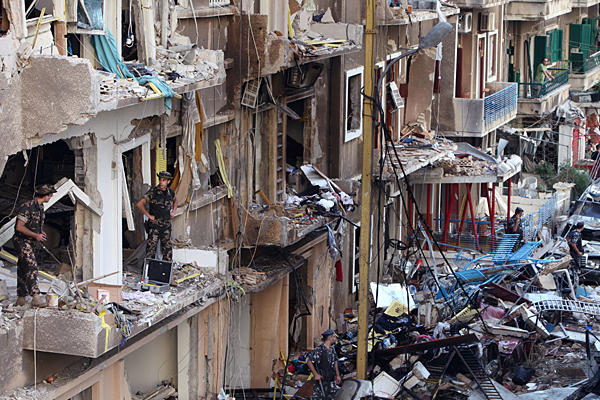Framing the Beirut Bombing

As expected, there’s been a mad rush among the anti-Syrian opposition in Lebanon to blame the Syrian regime and its Lebanese allies for the killing of Lebanese security chief Wissam al-Hassan in yesterday’s car bombing.
Lebanon’s Daily Star quoted MP Nuhad Mashnouq as assailing “the butcher Bashar Assad and the black regime that rules Syria with the power of fire and destruction and wants to export blood and devastation to our country Lebanon.”
There’s no denying that Assad is performing the role of butcher rather well — as are some of his detractors, whose butchery was previously facilitated by none other than Wissam al-Hassan himself. Blood and devastation exports both ways. As for the indigenous manufacture of such products for domestic use, premature sectarian hysterics over the al-Hassan assassination are probably a good way to expand the market for more violence.
Though Syria should hardly be exempt from suspicion in this case, it’s important to recall the political handiness of a little practice called framing. It’s important to recall other details, as well, such as that al-Hassan was initially a suspect in the 2006 assassination of Rafik Hariri, whose son Saad now presides over much of the anti-Syrian vitriol in Lebanon, and that the Information Branch of the Internal Security Forces — formerly headed by al-Hassan — also cracked down on Israeli spy rings.
Yesterday’s bombing took place not far from the offices of the anti-Syrian Phalange, the party responsible for executing, under Israeli sponsorship, the Sabra and Shatila massacre of a few thousand Palestinians in 1982 in response to the assassination of Phalangist President-elect Bachir Gemayel. As Gemayel had fallen out of favor with Israel shortly before his elimination, it is possible that Phalangist rage may have been misdirected.
The purpose of resurrecting this history is not to imply that Lebanon is imminently headed for a tragedy on the scale of Sabra and Shatila. Rather, it is to offer a reminder of the crimes that can result when impromptu guilty verdicts are issued by far from impartial self-appointed judges.